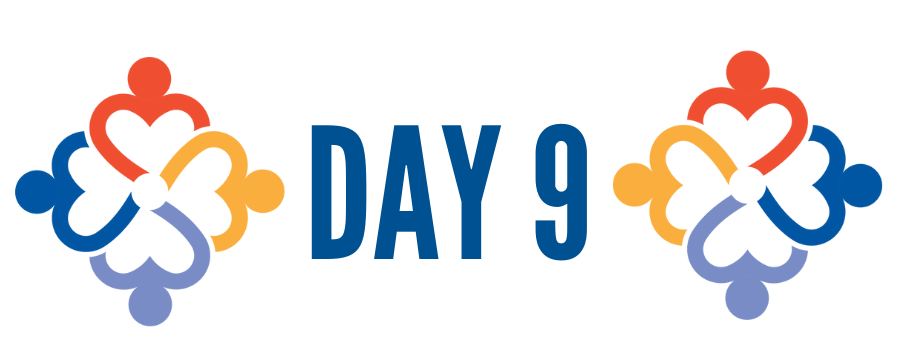
Day 9: Ableism
In its simplest form, ableism is the belief system that tells us it is better to be non-disabled than it is to be disabled. It’s the cultural message that many of us were taught when we were children. This belief is evident in our society’s lack of access and inclusion to the basic rights and benefits that non-disabled members of society have. Ableism is defined as the mistreatment, oppression, and/or exploitation of people with disabilities. It can also be described as discrimination of people with disabilities for the benefit of people without disabilities.
In order for us to live in communities that are inclusive and equitable, each of us needs to reflect on and examine the attitudes, beliefs, policies, and practices that create the unfair conditions we all interact with. How this shows up for various social identities is unique. One example of this is the concept of Inspiration Porn.
The term “Inspiration Porn” was coined by the Australian activist Stella Young and is now widely used throughout the disability community. She defines it as the objectification of disabled people for the benefit of non-disabled people.
Inspiration porn consists of images, stories, and media that portray people with disabilities as objects of inspiration. These messages suggest that if this (poor/lowly/less-than) person can manage to smile in “their condition,” then you have no excuse. Unfortunately, with the increase of social media use, these images are shared widely across the world which only perpetuates a negative message connected with disability.
People with disabilities are often given awards and special recognition for doing things that aren’t at all out of the ordinary for them. There are countless stories from people with disabilities of strangers showering them with accolades for simply being out in the world living their lives; as though there is an assumption that they would not be out enjoying life.
Inspiration porn is harmful to both disabled and non-disabled people. It provides people with a distorted and often offensive view of people with disabilities. It also suggests that a disability makes a person exceptional and overcoming a disability is admirable. Stella Young is quoted as saying, “Disability doesn’t make you exceptional, but questioning what you think you know about it does.”
Today’s Challenge
Read:
What You Need to Know About Ableism & Disability Rights by Elizabeth Broadbent (Nov 2018) [7 min read]. This article provides a broad introduction to disability and how common ableism shows up in our society. Broadbent shares many examples of ableism in policies and practices that often intentionally or unintentionally harm people with disabilities.
The Mighty: 12 Ways People with Disabilities Experience Internalized Ableism by Greta Harrison (Feb 2024) [3 min read] Negative attitudes and beliefs about people with disabilities can be held by people with and without disabilities. Ableist attitudes held by people with disabilities can be described as internalized ableism. This article shares 12 personal experiences of internalized ableism from members of the disability community.
Watch:
TED: Stella Young – I’m not your inspiration, thank you very much [9 min watch] In this very funny talk, comedian and journalist Stella Young breaks down society’s habit of turning disabled people into “inspiration porn.”
Oops, you did an Ableism! By Jessica Kellgren-Fozard (Feb 2021) [10 min watch] Disabled YouTuber Jessica Kellgren-Fozard provides a humorous and insightful approach to educate about ableism, how it shows up, and what we can do about it.
Discussion:
- How does ableism show up in your beliefs? How does it show up in the practices or policies around you?
- How have you been negatively or positively impacted by ableism?
- How have you witnessed or participated in turning disabled people into inspiration porn? What stories do you tell yourself about people with disabilities?
